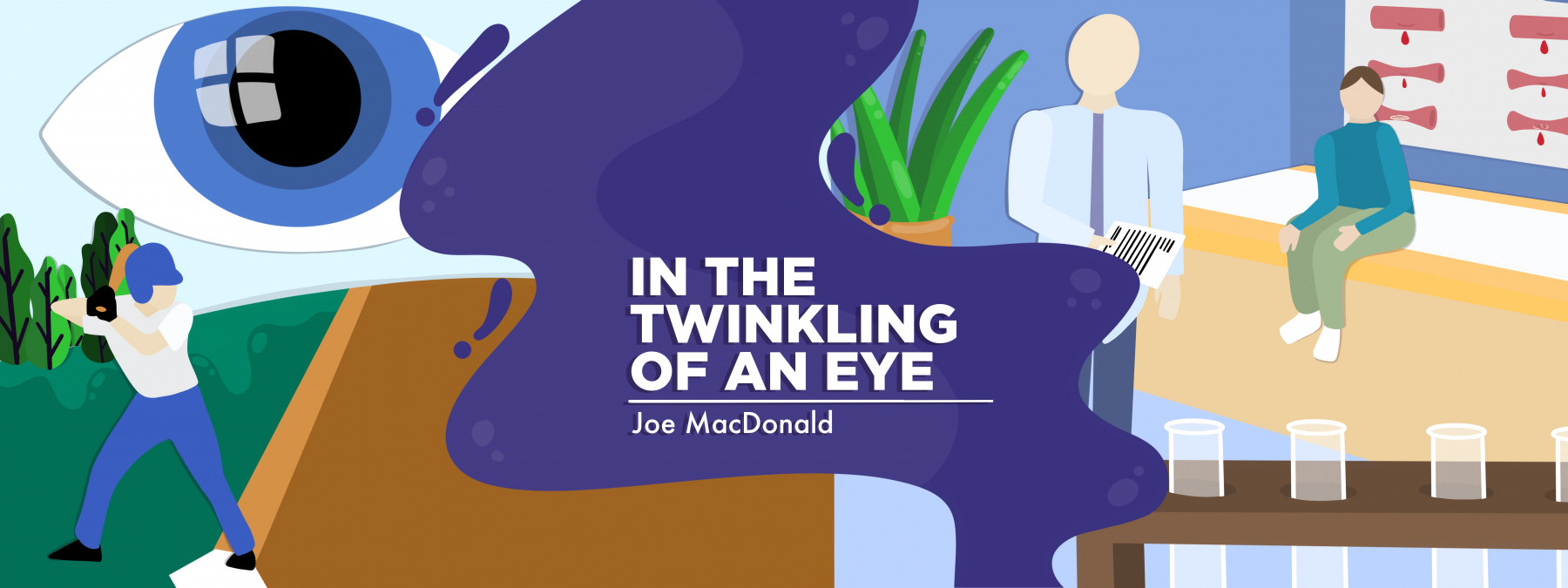Focusing on My Relationship With My Spouse and Fellow Caregiver

Many years ago, when hemophilia came into my family’s life, rearing its ugly head like a lion ready to devour its prey, we held on to anything we could.
As the chaos of chronic illness overtook our lives, my wife and I made plans to help our children manage their day-to-day lives. My older son, “MacDonald the Older,” needed help with transportation to and from school events, while my other son, “MacDonald the Younger,” required our support in the hospital. Both boys depended on us to help them through the storm.
With the battle raging all around us, my wife and I lost our way. As most of our conversations concerned hemophilia treatment and whose turn it was to spend the night at the hospital, date nights proved impossible. We talked about the needs of our professions and how we could help one another maneuver meetings, services, and a semblance of maintaining a show of regular office hours. Our focus centered on managing our boys and attending to work-related needs.
Through our lengthy stays at the hospital, I forgot one crucial aspect regarding our family. Somehow, my wife and I stopped asking how the other felt. We mistook our conversations about the crazy pain my younger son experienced and our successful attempts to provide transportation for our older son for checking in with one another. Our connection seemed to fade into the background, and soon, we felt as if we hardly knew one another.
I wondered, “How could this be? We talked to each other every day!”
I later realized that while we discussed current issues relating to our stinky boys, we had lost the vital ingredient of our journey: our relationship. No one ever told us that caregivers need to remember to help the other caregivers in our family.
Sometimes the storm of hemophilia makes its presence known. It is all we can do to stand up straight and fight the best way we know how. In our war with the bleeding disorder, the casualties may be a wound to the heart of relationships. We never imagined that we would fall victim to anything, much less a chronic illness.
After our lives calmed down and the storm receded, my wife and I went out on a date. We realized that we had not been on a date in a very long time. As we ordered our first glass of wine, I looked at her, extended my hand, and said, “Hello, my name is Joe, and I am your husband.” We both laughed, as if finally able to breathe for the first time in a long while.
I realized that I had missed my best friend and felt grateful that we could reconnect with one another. After a few more date nights, we promised each other that we would remember never to let our relationship fall to anything, even a horrible bleeding episode.
My wife and I proved very lucky, but I know of some couples who divorced because the strain of managing the demands of severe bleeding episodes proved too much. The stress of maintaining basic needs overwhelmed them as they lost the primary ingredient that nourishes a family: communication. Many times, the internal bleeding episodes trigger many other issues that give way to despair.
My wife and I learned that communication is the key to happiness. We face the future with a different outlook than when we started our journey as a family. We know that our relationship must be fed and watered. Our most significant source of strength is one another.
We hope always to remember to stop and provide support in times of need and take nothing for granted. Looking back at the rough, tough, terrible years propels us forward with a renewed spirit to always care for each other.
***
Note: Hemophilia News Today is strictly a news and information website about the disease. It does not provide medical advice, diagnosis, or treatment. This content is not intended to be a substitute for professional medical advice, diagnosis, or treatment. Always seek the advice of your physician or another qualified health provider with any questions you may have regarding a medical condition. Never disregard professional medical advice or delay in seeking it because of something you have read on this website. The opinions expressed in this column are not those of Hemophilia News Today or its parent company, Bionews Services, and are intended to spark discussion about issues pertaining to hemophilia.








Leave a comment
Fill in the required fields to post. Your email address will not be published.